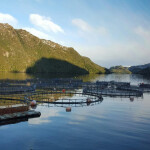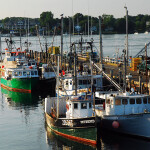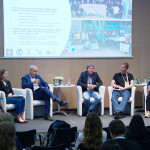Editor’s note: In the first of a two-part story, SeafoodSource Contributing Editor Nicki Holmyard sets the scene for the launch of HRH The Prince of Wales’ Marine Programme. In part two, she talks to some of the people and organizations who are collaborating with it to create a sustainable future for global fisheries.
More than 200 fishing industry experts from around the world converged on Fishmongers’ Hall in London on 3 February to take part in a summit on sustainable fisheries and to hear HRH The Prince of Wales launch his International Sustainability Unit’s (ISU) Marine Programme.
They were joined by ministers from the Republics of Maldives and Sierra Leone, the Sultanate of Oman and the Isle of Man, together with officials from the United Nations’ Food and Agriculture Organization, Organization for Economic Cooperation, the World Bank and the environmental community.
In his keynote speech, Prince Charles introduced a major report, “Towards Global Sustainable Fisheries: The Opportunity for Transition,” and explained that he has taken an interest in sustainable fisheries for more than 20 years.
“Unfortunately [the regenerative capacity of the world’s marine environment] has been severely weakened and it is critically urgent that we find a way to manage this precious resource much more intelligently,” he said. “If sustainable management of fisheries is applied more widely, the long-term benefits will be seen in larger catches at sea, higher earnings, more secure jobs and healthier marine ecosystems.”
In speaking about the many issues affecting the ocean, he added, “The human assault on the Earth’s oceans is depressingly comprehensive. Many, like myself — but not enough at present — are deeply concerned.”
It is this concern that led Prince Charles to set up the Marine Programme, which has just completed two years of extensive research and consultation. The ISU commissioned a report into 50 of the world’s fisheries in transition, looking at the benefits, drivers, tools and enablers of change. It is written in the form of interviews with the fisheries’ leaders. Citing examples from Asia, Oceania, North and South America, Europe and Africa, the report concludes that it is possible to make changes toward sustainability and argues that the benefits are tangible.
“Change appears to be most effective where fishers and the fishing industry are organized, have their voices heard and are involved in designing solutions to the challenges,” said the report. This is where the ISU sees its role — acting as a catalyst for change.
The World Bank estimates that fisheries could be worth an additional USD 50 billion to global GDP if they were better managed; they are currently worth around USD 274 billion. The ISU believes that the successful examples highlighted in their report can and must be replicated more widely, and achieving this is the focal point of the Marine Programme.
Over the next few years, the ISU will meet with stakeholders to encourage greater interest in maintaining sustainable fish stocks, while working on management solutions to achieve this. The aim is to use examples of best practice to assist underperforming fisheries to embrace an ecosystem approach and to put in place robust enforcement and sound economics.
It also aims to facilitate three major steps toward sustainability as identified in the report. These include better data collection and more collaborative research between scientists and the fishing industry; the development of new finance options to enable change to fisheries management; and the involvement of the private sector supply chain in supporting fisheries improvement projects, such as sustainable certification.
In pushing the agenda for change, the ISU is drawing on the knowledge and experience of 20 Fishing Industry Ambassadors from around the world, who have agreed to work with the Marine Programme. (Click here to view the list of ambassadors.)
UK Fisheries Minister Richard Benyon, EU Commissioner Maria Damanaki and David Nussbaum, CEO of the World Wildlife Fund, all spoke in support of the Prince Charles’ initiative and praised his vision for setting it up.
For now, the program will concentrate on restoring fisheries, but it may be missing a major opportunity to highlight the need for sustainable aquaculture to help feed future populations, especially when this is already playing such an important role.
Prince Charles’ report finds that if everything is done perfectly — which is not likely to happen — then the ISU would hope to see an increase in value of fish landings of less than 20 percent. Compare this to the view of the FAO in its World Review of Fisheries and Aquaculture, which considers that by 2030 an additional 26 million tons of seafood will be required merely to maintain the present rate of consumption, and the great majority of it will need to come from aquaculture.






